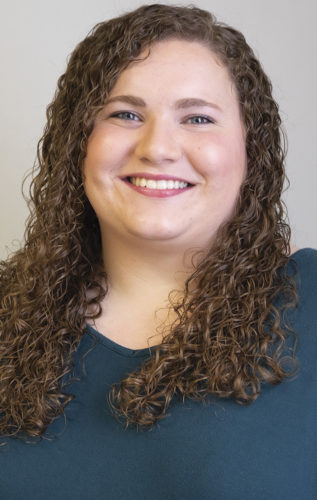For producers who arrive on the ranch a little later in the game, whether through marriage, happenstance or sheer curiosity, the adjustment from civilian to rancher can be a long and tough one. For a handful of women, that transition was made smoother at New Cowgirl Camp.
Beth Robinette, who owns and runs the Lazy R Ranch in Cheney, Washington, with her father, Maurice, hosted the first New Cowgirl Camp in 2017. She and her father take a holistic approach to managing the nearly 1,000 acres they use to support their 180-head herd.
Robinette and veterinarian/rancher Sandy Matheson, both members of Roots of Resilience, an organization that advocates holistic management and sustainability practices, were brainstorming ideas for workshops and training when they found their inspiration for New Cowgirl Camp.
 Robinette says it is always a struggle for producers to change their management practices, regardless of how interested they are in the theory of holistic management. “For the most part, producers come to our workshops, and they learn a few things, but then they will go back home and do exactly the same things they’ve been doing,” she says.
Robinette says it is always a struggle for producers to change their management practices, regardless of how interested they are in the theory of holistic management. “For the most part, producers come to our workshops, and they learn a few things, but then they will go back home and do exactly the same things they’ve been doing,” she says.
“When I explain to someone outside of agriculture or outside ranching, the principles of holistic management, they say, ‘Oh, that makes sense,’ and pretty much my reaction when I explain it to a group of producers is ‘Oh, well, I see how you’d get that to work on your place, but that will never work here because of X, Y and Z.’ So I thought, ‘What if we tried to reach those people who don’t have to fight against their existing paradigm of what ranching should look like? What if you wanted to get into ranching and you were not born into it? Where would you go to get those beginning foundational skills?’”
So they began organizing “New Cowgirl Camp,” a weeklong immersive training for women producers new to the industry that focused on foundational ranching skills and holistic management principles.
Learning from the ground up
They had eight campers who ranged in age from 23 to 66 and comprised women who owned their own farms and had been working at it for a few years but still wanted more practical skills, and women who had never really been on a farm before but had a dream of having livestock in the future.
The courses included basic information and instructions on the different aspects of ranch life, from “Animal Husbandry 101” and low-stress livestock handling to building fence and giving shots. “We even taught everybody how to cross a barbed wire fence without looking dumb,” Robinette says. “That was one of the highlights of camp, now I look back on it.”

One of the most popular courses was ecological monitoring and tracking pasture health. “We went out to practice ecological monitoring, which is a way of monitoring the state of your land on different important parameters – for instance, biodiversity and growth,” says Rose Dyre, a camp attendee from Denmark.
“I like the idea of farmers being able to evaluate what their grazing does to their land themselves.”

“We only saw the land in one season, but we were able to see pictures of differences between a holistically managed ranch and a not holistically managed ranch and how it works throughout the seasons; then we would go out into the field and take a look at the grass and learn how to do rangeland monitoring and actually get hands-on in the dirt,” says camp attendee Hayley Younce.

Camp attendee Jenna Johnson said making a rotational grazing plan and learning about how the land responds to it was very useful to her.

“It makes you think about where you should put the animals at different times of the year so you have the correct impact on the land – a good impact.” She said that was one of the first mistakes she made when she started grazing her own cattle. “They’re not getting the full benefit, and you have a potential health problem when you do that kind of stuff.”
Campers also learned about low-stress livestock handling. “I think a lot of women may be intimidated by the idea of working with livestock, especially large livestock, and when you’re new to agriculture and don’t have many role models, it would be hard to envision where to start with that,” Robinette says. The campers got to watch demonstrations using cattle and sheep, then practice techniques with sheep.
“I’ve been around animals my whole life but never cattle or large livestock that can actually kill you. It takes a significant learning curve to figure out how to get over an innate fear I’m going to get smushed or crushed and how to learn to operate with livestock of that size,” says Johnson. “When you’re dealing with a couple thousand pounds of animal, there are definitely some different ways to behave.”
“I had seen it done lots of times before, but I didn’t understand why they were doing what they were doing,” Younce says. “Everything clicked, and I got to see it, and I got to hear why it worked, and then we got to practice it. It was very fun to actually work with the animals, and it seemed to all come together.”
Friends forever
Robinette says the diversity and camaraderie between the campers was one of the most powerful and lasting teaching tools. “Everybody gelled and came together, and it was a very positive environment, and I think everybody came away with more confidence in their ability to do things,” she says.
“The community aspect of it was really huge,” says Younce. “Even if somebody’s been [ranching] their whole life, being able to gain the connections and the community and camaraderie with people who share your interests and values would be really beneficial for anybody.”
Dyre, who lives and works on a sheep farm in Denmark, says the friendships she made during the camp are still going strong. “The other Cowgirl Camp participants are very cool, tough people with real dreams and the guts to dare to pursue them. I enjoy following their adventures on social media, and I cheer every time they have another calf born.”
“It was a very inspiring experience, and the women all had varied levels of knowledge. Some were super city gals, and some were at various levels of actually knowing agriculture and farming in one form or another, so everybody learned something, I think, and it was a good bonding experience,” Johnson says. “A lot of us still keep in touch with each other to see how things are going, so it’s good. It was, overall, a good way to connect with women who are in agriculture.”
Roots of Resistance also offers New Rancher Camp and New Rancher School. ![]()
PHOTO 1: Campers get to practice their newly acquired ecological monitoring skills.
PHOTO 2: Robinette teaches campers about holistic management principles.
PHOTO 3: How to cross a fence “gracefully.”
PHOTO 4: Rose Dyre (right) is a native of Denmark and has worked on sheep operations in Tanzania, Chile and British Columbia. She learned about the camp through social media.
PHOTO 5: Hayley Younce (right) had very limited experience with ranching. Her husband is a ranch hand at Lazy R Ranch.
PHOTO 6: Jenna Johnson and her husband run a 70-acre farm where they currently raise cattle, pigs, chickens, ducks and turkeys. Photos provided by Beth Robinette.

-
Carrie Veselka
- Associate Editor
- Progressive Cattleman
- Email Carrie Veselka











